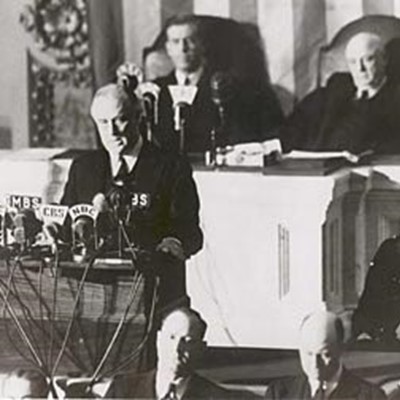
We make this point frequently in our programs:
Presenters often put in long hours making a PowerPoint deck or working out a pitch - and invest much less time in preparing for questions.
Some don't even prepare at all, relieved to think there's at least one part of the assignment where they're allowed to "wing it."
Being prepared for questions can make your presentation so much more effective.
And maybe more important, being prepared can help you build your reputation as a capable and confident speaker.
These five tips can help you get ready for the challenges that may come your way:
1. Think about the group and your relationship with them.
Who will do the asking: a boss, a client, a peer, a direct report? Are you bringing good news or bad? Are there hot issues aside from the ones you're addressing? Do you need to research your audience before you present? Do you need to recruit allies?
How you answer questions depends on the context.
For example, when a boss or client asks a question, you give the answer when asked. With peers or direct reports, you might ask them to hold the question until you've finished presenting.
Or if you know you're pitching an idea that has opposition, you might be able to minimize questions and challenges by speaking with individuals before you present to the group.
By thinking through the variables in advance, you can set yourself up for greater success.
2. Brainstorm possible questions, then work at giving the short answer first.
Most presenters can think of questions they'll be asked - and by doing so, make themselves ready to answer both the tough questions and the easy ones.
Easy questions, by the way, can be some of the toughest to answer succinctly. Consider how many people struggle with answering the question: What does your company do?
As you work out your answer in advance, you can strive to give the short answer first. Why is that helpful?
The short answer first gives the audience a roadmap. Instead of taking them on the path of your reasoning and concluding with the short answer, putting it first lets them know where you're going with all those details.
3. Train yourself to look for the question behind the question.
Sometimes, a person isn't seeking a literal answer but is looking for reassurance that you understand the topic or have considered everything. Sometimes, people ask a question because they have an agenda that's different from yours. And sometimes, people don't phrase a question in the best way.
Consider why they're asking and where this question might be coming from.
Then you can decide whether to give them the short answer to their question - or if bridging to a better answer might help them and you. Which takes us to our next tip...
4. Look for opportunities to advance your message when it makes sense.
Clients and colleagues can become frustrated when you don't address the question. So give an answer but if you can relate your answer to one of your points, do so and make your case stronger.
In media training, you learn about bridging - a way to pivot from a question you don't like to the point you want to make.
Another way to think of advancing your message is to think of making it a "plus one." Give the answer they seek PLUS a point you're making that's related to it.
5. If you don't know, say so - and offer to get an answer if you can.
Few people in this world have all the answers (and we're suspicious, frankly, of the ones who do.)
If you don't know an answer, you can say "I don't know," offer to find the information, and get back to everyone with it.
If a series of questions stump you, you won't want to say "I don't know" multiple times.
You might try delivering a big picture answer when you can: "I don’t have the specifics, but I can say in general that we…." Or you can acknowledge there's an area you need to explore further or draw on other experts in the room.
Learn more
Not all questions are asked with good intentions. Here are some tips for handling questions designed to make you look bad.
For more on how you can use bridging to pivot to an answer you want to give, see this.
And go here for more strategies to help you prepare for and control Q&A.






